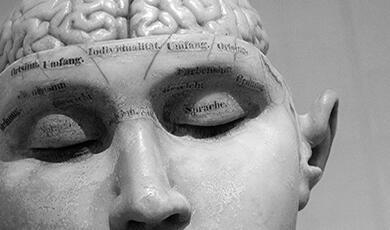Press release: Dementia: A Cultural History

Is ‘Ageism’ still one of ‘the most acceptable forms’ of discrimination?
Elderly with dementia ‘treated as if they were already half dead’
Today ‘embracing cognitive alterities is good for all of us’
Embargo: Thursday 11 May 6pm (UK time)
We would like to invite you to a lecture on Dementia: A Cultural History, by Professor Joanna Bourke on Thursday 11 May 6pm (UK time) at Gresham College or online. Professor Bourke will explore the roles of people with dementia in society and consider what happens if individuals begin to personally experience dementia.
Known to the ancient Greeks and the Romans, dementia was often regarded as a normal aspect of ageing, and only identified as a pathology of the brain in the 19th century. In this lecture Professor Bourke will explore how dementia has been considered a normal part of ageing, but more recently has been considered a disease that demands a cure – with large funding now put into it. She will also look at the rise of geriatrics and the first use of the word ‘ageism’ (in 1969); and at changing approaches to dementia.
She will say, “Today, there is an extraordinarily high level of shame associated with dementia, with sufferers accused of being a ‘burden’ on their families and communities. People with dementia are routinely infantilised. In some communities, Alzheimer’s is blamed on the ‘evil eye’ (or ‘el mal de ojo’) or ‘bad blood’. People living with dementia are seen as ‘old and mad’ well before any other unique features and feelings are noticed. Only rarely does this cause outrage, as when the biopic The Iron Lady was released, showing a confused and reclusive Margaret Thatcher suffering from dementia. The Daily Telegraph deemed the film exploitative and ‘insulting’. However, this response was fundamentally political: it was Thatcher’s conservative legacy that was being defended, as much as the dignity of the woman herself. More commonly, (Robert N.) Butler is correct when he observed that ageism is ‘the most acceptable’ form of discrimination. It is often very explicit.”
Bourke will emphasise that “there are vast disparities in who is more likely to develop dementia. For example, in the U.S., the prevalence of Alzheimer’s is twice as high among African Americans and Hispanics than non-Hispanic whites. Despite such differences in risk, most research into dementia is carried out on white people. In part, this is due to the fact that minoritised people are more anxious about becoming involved in medical trials – a legitimate concern given the historical role of physicians in justifying racial inferiority and experimenting on Black bodies.”
Bourke discusses the metaphors about dementia which affect how we see and treat those with it – and those who have it: “Is the person with dementia nothing more than a ‘computation device running gradually and inexorably amok’ or are their symptoms acting like a ‘series of circuit breakers in a large house, flipping off one by one’. The most common metaphor for people living with dementia is that their life is a ‘funereal without end’. They are experiencing a ‘second childhood’ or enduring ‘a death before death’. They are described as an ‘empty shell’, the ‘living dead’ who are ‘drifting towards unbeing’. Dementia is personified as a ‘mind robber’ who ‘plunders memories’. In the words of one author, the disease ‘quietly loots the brain, nerve cell by nerve cell, like a burglar returning to the same house each night’. Carers speak about ‘the ‘long goodbye’.”
She goes on to discuss a hopeful, recent shift in attitudes towards critical gerontology, looking at the “joy that many people with dementia feel”; and at developing models of selfhood that are “liberated from cognitive ability”. She will conclude: “Embracing cognitive alterities is good for all of us.”
ENDS
Notes to Editors
You can sign up to watch the hybrid lecture online or in person; or email us for an embargoed transcript or speak to the lecturer: l.graves@gresham.ac.uk / 07799 738 439
Read more about Professor Bourke
Sign up to our monthly newsletter here to get advance notice of our events.


 Login
Login





